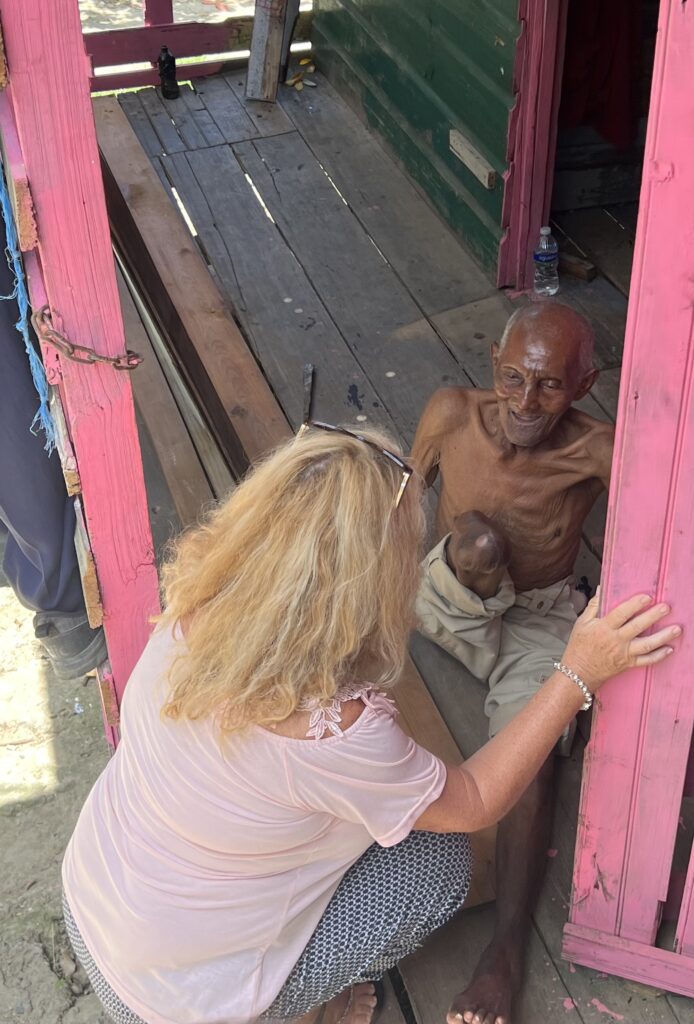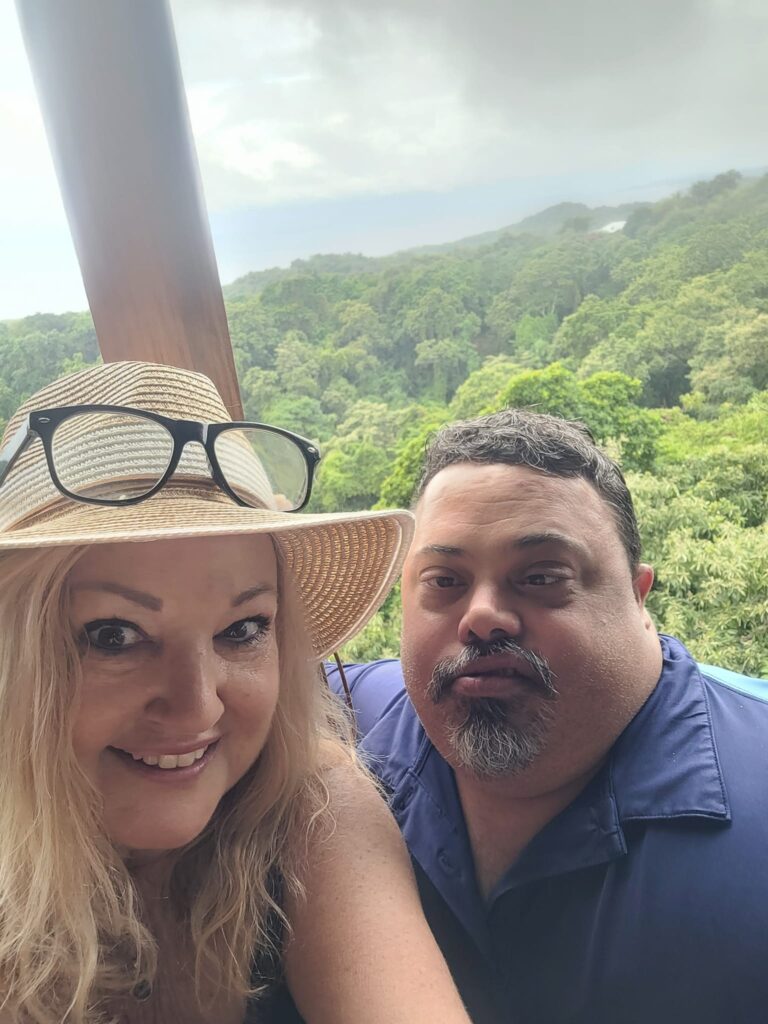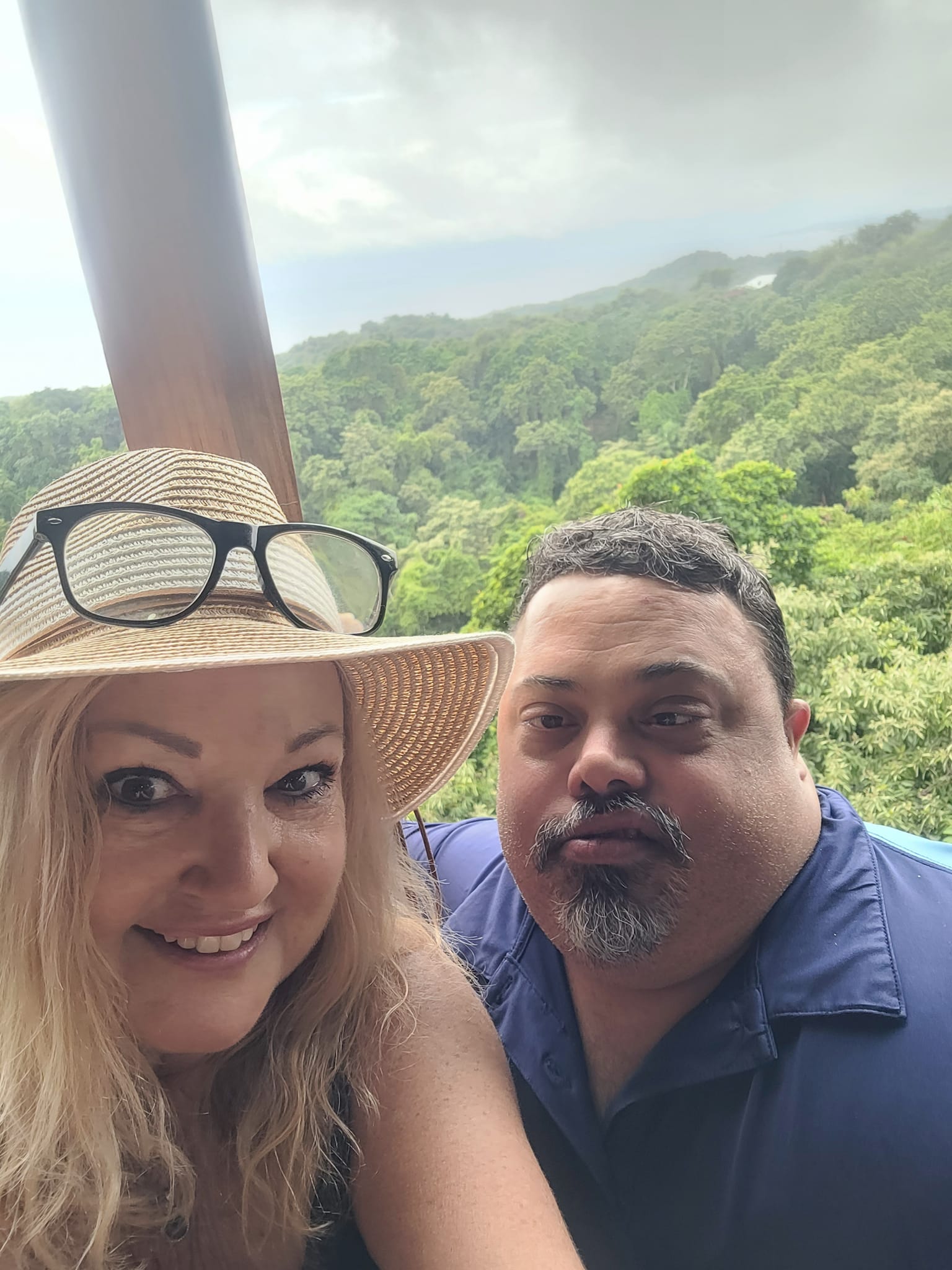Pediatrician to a mother of a disabled child on the island of Roatan, Honduras: “Take her home, love her, but don’t feed her”
Her mother went home and decided to keep on loving her. And feeding her. Today this girl is grown up and has a job, despite her Cerebral Palsy.
This event symbolizes the attitude many people still have toward disabilities in this part of the world. Join us on a journey to try to change that and make a better life for the ones that are wrongfully looked upon as outsiders.

Disabled people have been ignored, neglected, abused, and called retarded in many cultures throughout history. Most of them are not able to work for an income and therefore are seen to be a burden since they cannot contribute to the community. Fortunately, that has changed in many places but echoes from the past are still shaping how societies look upon disabled persons.
Shelly Trevino from Florida started working with people with disabilities when she was 18 years old. The first time she saw abuse and neglect was in an institution. Human beings, adults and children, were locked in, without any heat in cold winters. She has seen the results when the disabled do not get any training or stimulation. – Aggression, Self Abuse, Failure to Thrive.
They bang their heads, bite, throw food on the floor, and eat from it
She has seen it all throughout her journey in the field of disabilities. She has seen individuals and businesses start homes for the disabled just to make money and have power over people.
She also saw the opposite. The ones that put all their effort into providing the best quality of care and life for persons with disabilities. They truly cared and it showed a huge improvement in all aspects of the life of persons served. The person’s abilities became evident and amazing. Their disability was no longer the focus.
Back then she decided to dedicate her life to the disabled part of humanity. She believed and still believes that they can come a long way with training and support.
“It was a blessing to one day see the person that ate from the floor sitting and eating at a dining table in a community home. It was a blessing to see people once housed in an institution, to be happy and active in their community. This is what gives me drive in this work. Seeing people be trained and supported to live in their community, participate in their community, and to thrive has kept me going all of these years. Their progress can be measured and noticed by all”
Shelly has spent 40 years among the disabled. She came up through the ranks from a personal care worker to administrator of group homes and day programs to Multi-State Quality Assurance Director and a Quality Assurance Reviewer contracting with the Federal Government. She has assisted in managing and developing of infant programs, Adult Day Programs, Senior Programs, Group Homes, Supported Living and Supported Employment for persons with disabilities. She has among others worked with ResCare, the biggest company in the world providing supports for persons with disabilities. No matter the many large companies she worked for, she never lost sight of the individual and their need for personal centered supports and services.
In 2017 she was vacationing on the island of Roatan and, in a discussion with a villager, she saw the shortfalls in the care, support and education of adults and children with disabilities. She has returned to the island numerous times in efforts to meet many of the adults, determine their needs and work with the community to understand the support needed to provide for persons with disabilities.
Some of them are tied to the beds, often overmedicated, sleeping all day, so their parents can go to work.
She realized that only very few adults with disabilities were educated and active in their community. Reports for schools, teacher and medical professionals, estimate that there are hundreds of disabled around the island, and many of them hidden from the neighbors because their parents are embarrassed. Some of them are tied to the beds, often overmedicated, sleeping all day, so their parents can go to work. Shelly is clear that this is not the way to go:
“They think it is safer for them but it is abuse”
She discovered a training center for the youngest ones, Cattleya, in the village of French Harbor. But nothing for the grown-ups, meaning that when they grow up they will quickly back to square one.
Shelly wants to use all of the experience she has gained in the United States. Her hope is to make a Day Program on Roatan for adults, with a variety of training programs. She will go from village to village and try to convince the families with disabled members that such a center will make their lives easier. She will also use the media and the churches to spread the word and get relevant information translated into Spanish.
So what can a Day Training Center offer?
“We can give them the basics: toilet training, how to put their clothes on, how to wash clothes, how to feed themselves, how to brush their teeth, just as examples. Some of it is training in a group and other things are one-to-one, based on their individual needs. We will also offer physical exercise and therapy, and simple medical and behavioral training. We will include art, music, and dance. Basic academic and money skills will be provided as well as simple cooking skills”
She also wants to include a sheltered workshop where they can get work skills training.
“Many people think that the disabled cannot work. We like to say that we want to make a disability into an ability. We can secure contracts with local businesses that will hire disabled for simple assembly, shred documents, landscaping and so on”
She has to admit that not everyone can have a job. But they can do something, they just need training. And a lot of them won’t work because they are frightened or their family is frightened for their safety. We can provide oversight and training to ensure they are safe. Some people are elderly and need support. Some need to have the simple quality of life that we all have. Our program will do this. It will help not only the person but their family. We will assist with obtaining medical and behavioral care.
“The people that participate will feel socially valued for the first time in their lives”
What’s the achievement?
“The people that participate will feel socially valued for the first time in their lives. Their fears will decrease. Their skills in many areas will increase”
Shelly is on her way back to Roatan in June 2023 to continue to work with project planning. She will ship a lot of available equipment, supplies and educational material from the USA, but since the government does not fund the project she needs to raise funds herself. Do you want to support the work for a better life for the disabled on Roatan?

Written by: Roger Bjoroy-Karlsen
Edited by: Lauran Timlin

